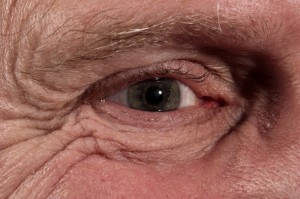 NBC News.com reports on wrinkles making people look sadder and madder than they truly feel. This new study suggests that wrinkles impede people’s ability to read a person’s facial expression of emotion.
NBC News.com reports on wrinkles making people look sadder and madder than they truly feel. This new study suggests that wrinkles impede people’s ability to read a person’s facial expression of emotion.
Researchers reported that people in the study rated faces of older adults as much more sad and angry than faces of younger adults even though they were exhibiting neutral facial expressions.
More research is needed; however, to confirm these findings but the implications of such a study has a wide range. These findings may affect how our older generations are treated in medical settings. For instance, doctors may misperceive an older individual to be in more pain or anguish than they truly are.
The researchers found that there was no link between the level of sadness or anger participants thought older adults experienced in real life and their ratings of the faces.
Carlos Garrido, researcher and doctoral student in social psychology at Penn State University states that wrinkles on the face can cause the mouth to drop and the forehead to crinkle, features that others may misperceive as anger or sadness.
In a similar article from HealthCanal.com, boys more so than girls were found to be able to perceive depression in their parents even when the parent thinks they are not showing any signs.
A University of Michigan Study finds that children who have one parent suffering from depression are skilled at picking up on their parent’s sadness. Researchers analyzed data on 104 children ages 7-13 who had at least one parent diagnosed with depression.
Nester Lopez-Duran, one of the study’s authors and an assistant psychology professor said that high-risk boys were more sensitive to subtle expressions of sadness than their peers, including high-risk girls. He notes that this can be due to a few things:
1. Boys are less social than girls in important situations. Perhaps high sensitivity to sadness influences how boys see their social world (i.e. they are less apt at using others as sources of comfort when they are sad).
2. Other evidence points to the fact that different underlying processes that put kids at risk for depression may be different for boys than girls.
3. It’s also possible that this unique skill does not reflect an underlying vulnerability and might be an adaptive strategy that develops in response to the environment. That is boys are more likely to receive harsh punishment and parental depression increases the risk of using harsh punishment.
“It is possible that these high-risk boys developed this skill in order to reduce the possibility of getting harsh punishment by essentially recognizing when mom or dad is upset and getting out of the way,” Lopez-Duran said.
Do you agree or disagree with the findings of this study?
 How would you react to your phone asking you if your super excited or feeling depressed?
How would you react to your phone asking you if your super excited or feeling depressed?